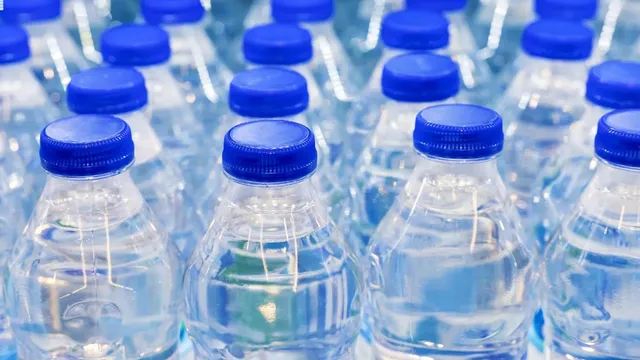- By JE News Desk
- Wed, 04 Dec 2024 07:49 PM (IST)
- Source:JND
Water is an indispensable part of our lives, yet traditional water management and purification methods often fall short of meeting modern demands of purity and nutrition, ensuring efficiency while focusing on sustainability. While the demand for clean water increases across the globe, new technologies are redesigning the concept of water quality and value. This article aims to discuss the innovations in technology, including those brought by water-tech startups, changing the water management landscape and setting new benchmarks.
The Technological Revolution in Water Management
Real-Time Monitoring and Efficiency
The most significant development is the integration of IoT to monitor water systems in real time. IoT technology comprises a system of connected sensors and devices that monitor water quality, rate of flow, system efficiency and so on. This technology also provides insight into water quality such as its PH, and TDS with the use of real-time data, identifying problems such as leakage and contamination within the system, which is important for enhancing water quality. For instance, advanced systems for water management include smart meters and sensors to get accurate quantification and control water usage effectively.
Predictive Maintenance and Long-Term Reliability
Another major technological advancement is predictive maintenance. With advanced IoT sensors, the conditions of the infrastructure could be closely monitored, hence predictive maintenance systems could be used to predict & prevent failures. This proactive approach greatly assists in preventing system downtime and elongating the overall life of the water management equipment. These systems track and process information concerning various attributes such as vibrations and pressure, providing timely notification for maintenance activities.
Enhanced Water Quality Monitoring
The quality of drinking water is a significant factor that should be given attention to promote the health of people. Current technology has enabled the use of high-quality sensors that can monitor different aspects of water quality such as acidity, water clarity, salt composition and tracking any pollutants. These sensors are essential for identifying toxic bacteria/viruses and chemicals. For instance, some of the current models of water purifiers come with monitoring systems that can detect changes in water quality to geographical & seasonal factors, hence can adjust the purification process within to match current safety standards.
Industry Challenges and Innovations
The use of enhanced technologies in water management has its benefits and susceptible threats. The main concern is around data protection, about risks related to IoT devices’ vulnerability to cyberattacks. Proper implementation and maintenance of data protection standards are crucial in guarding such information. Furthermore, the compatibility of different devices and systems is another challenge. This is why it is vital to standardise the method and frameworks to have efficient integration.
However, the prospects for the development of technological solutions in the sphere of water management are rather great. Smart technologies are developing rapidly, and this leads to potential partnerships between technology companies, governmental agencies, and academic institutions. Such arrangements are paving the way for innovative solutions that are geared towards addressing the needs of urban settlements.
In addition to IoT, a multitude of other emerging and innovative technologies are revolutionizing the field of water purification. These new cutting-edge technologies are being harnessed by startups to significantly enhance the quality of water. Some of these technologies are as follows:
AI and Machine Learning
AI and machine learning are the new technologies that are finding their way into water treatment by offering enhanced adaptive purification features. Machine learning models work on big data to assess and forecast the deterioration of water quality. In treatment processes, machine learning models can be trained with past and current data to enhance the ways it can be done.
Advanced Sensors and Automation
The development of advanced sensors has enhanced water quality monitoring. Most of these sensors are capable of measuring contaminants at very low concentrations and this can provide more information about the water quality. These sensors are installed in automation systems used in the purification processes, which aids in maintaining the quality of water. This is especially useful in environments with lack of technical skills where the system is to be implemented.
The Shift Towards Sustainable Solutions
One of the major trends evident in the water management industry is the adoption of sustainable solutions. This trend is evident through emerging technologies like the AI-IoT water purification platforms. These platforms not only facilitate water purification but also ensure the elimination of plastic bottles in the water supply chain. For instance, new technologies are being applied in the hospitality and healthcare sector where they are replacing plastic bottles with glass ones. It also helps avoid the use and disposal of plastics, which support the circular economy.
Conclusion
Modern technologies applied to water management and purification have become the benchmarks of how efficient, sustainable, and high-quality water treatment can be. Analysing the current situation and tendencies, IoT, AI, and smart sensors are the innovations that help to manage and purify water. Thus, as technology progresses, the opportunity to develop better and more efficient solutions for water management increases, paving the path to a healthier and more sustainable future.
(Disclaimer: This article is written by Advait Kumar, Founder, Boon and Jagran English does not endorse the views expressed in the article.)

